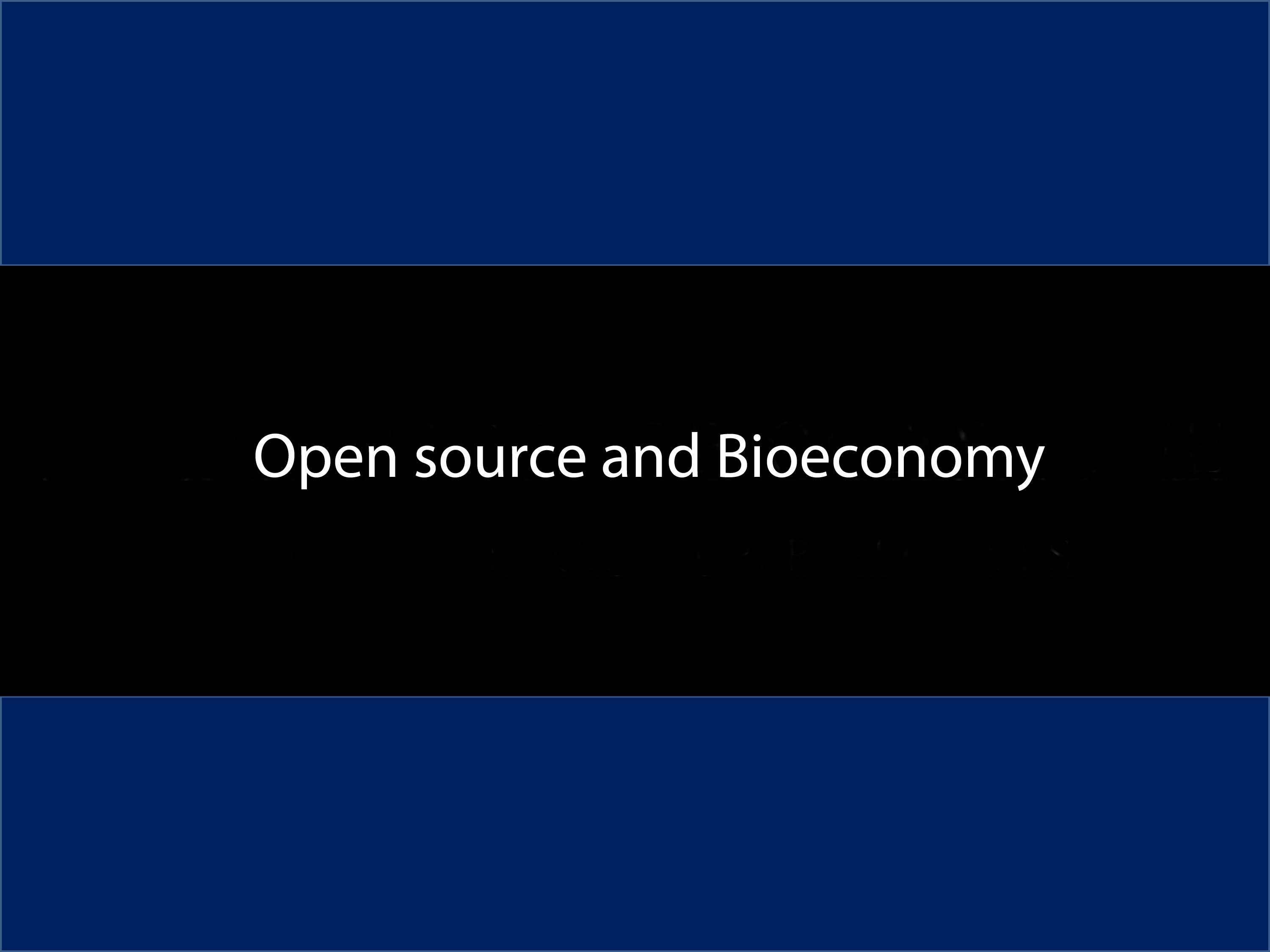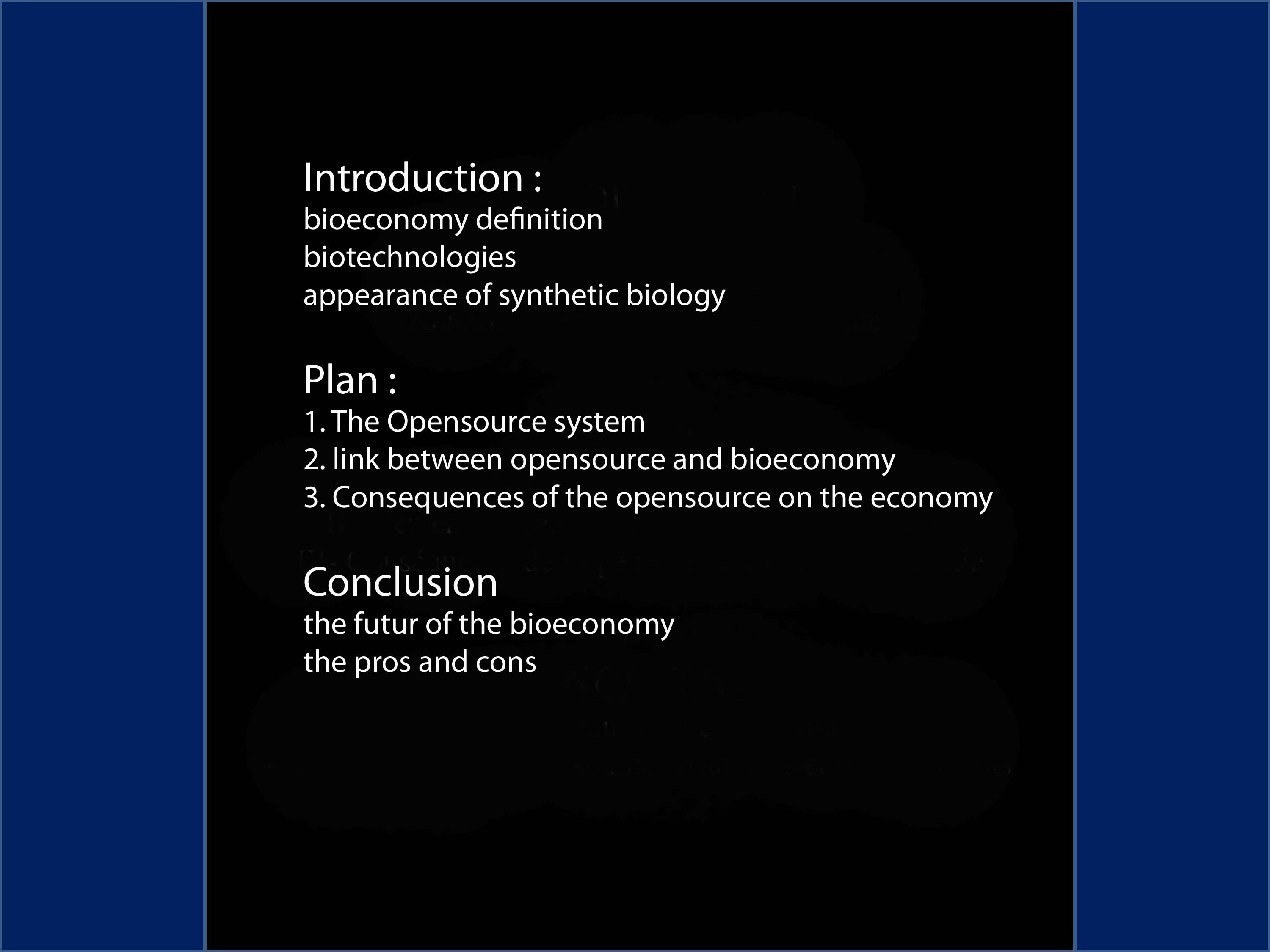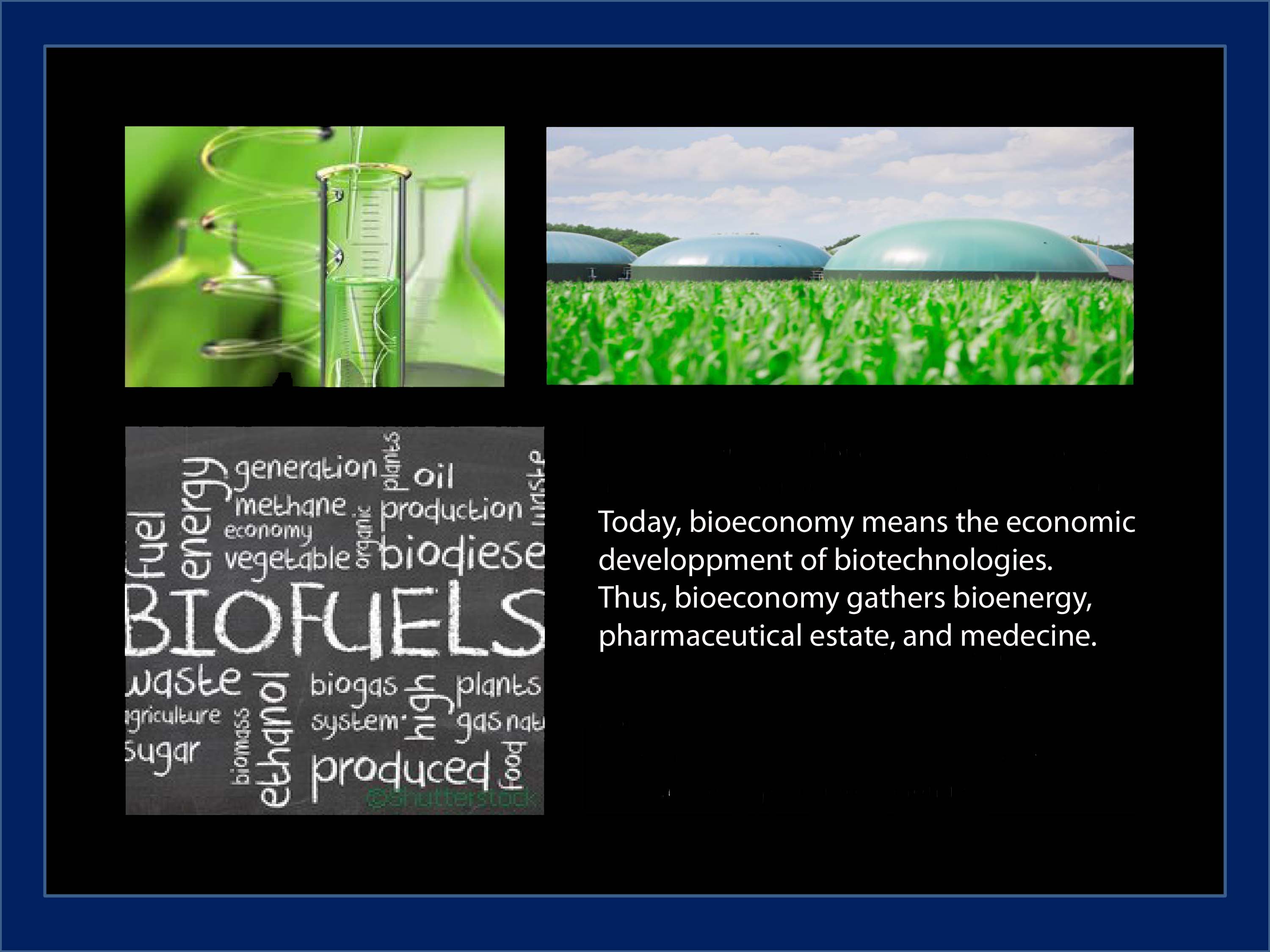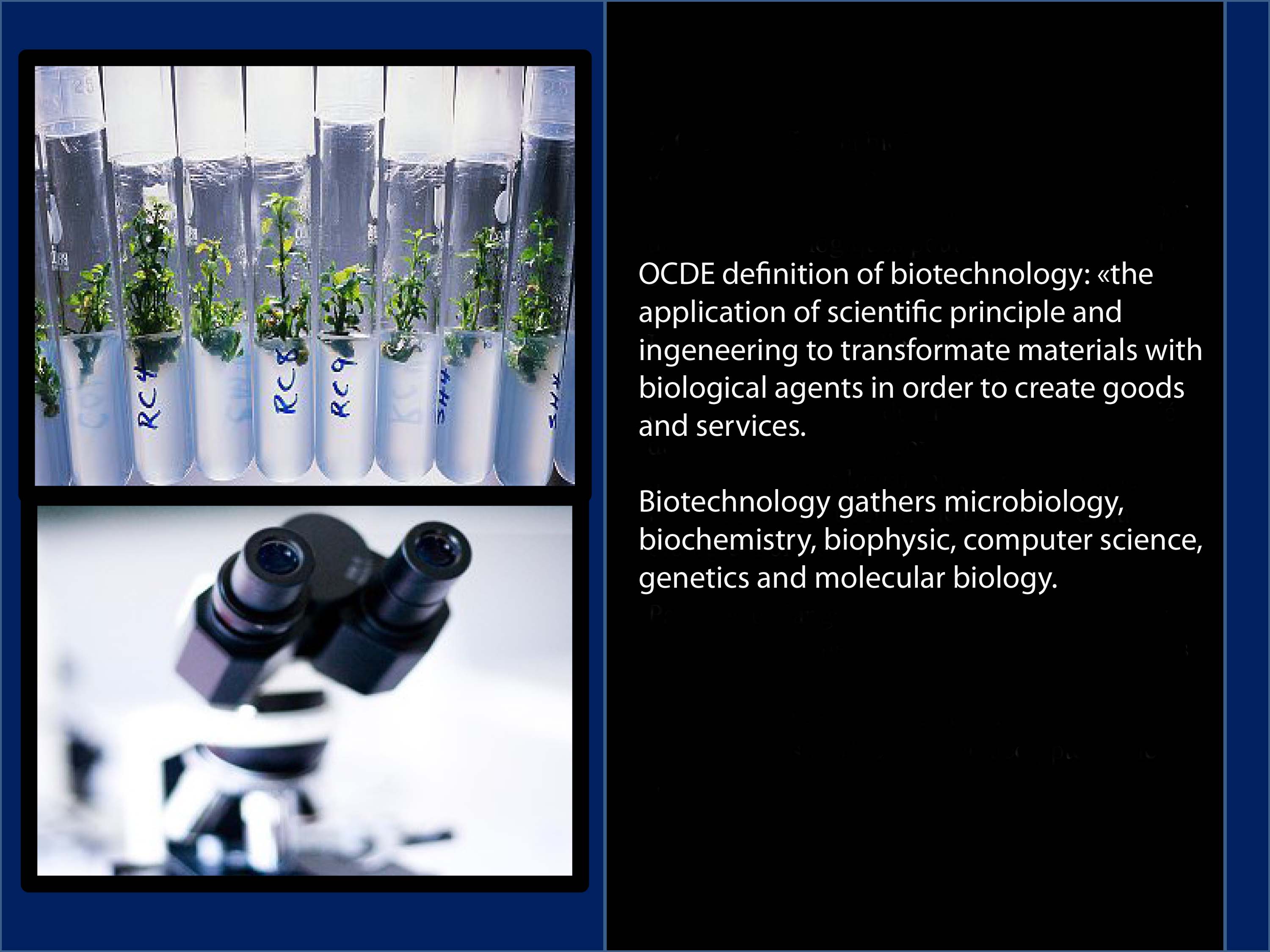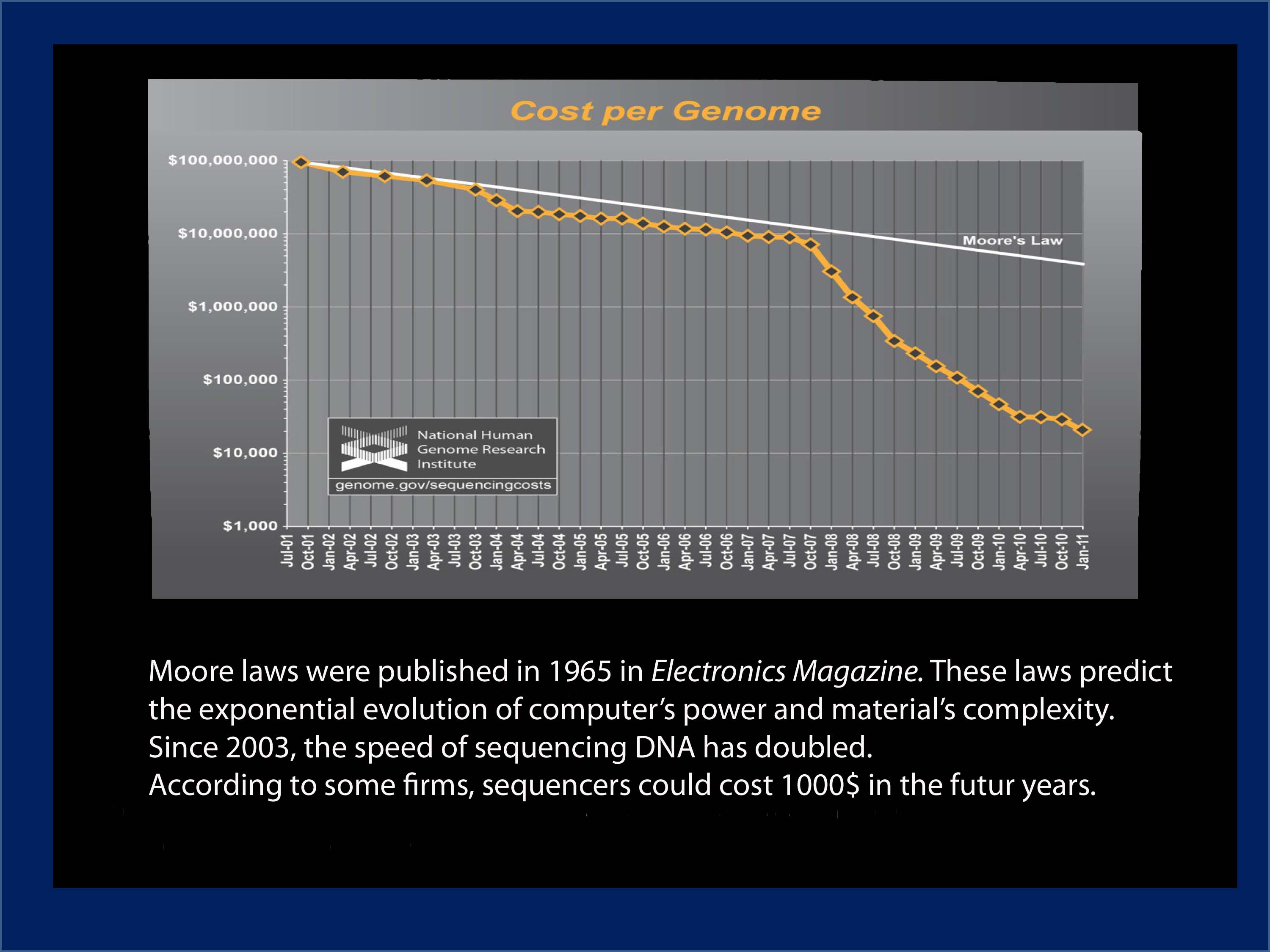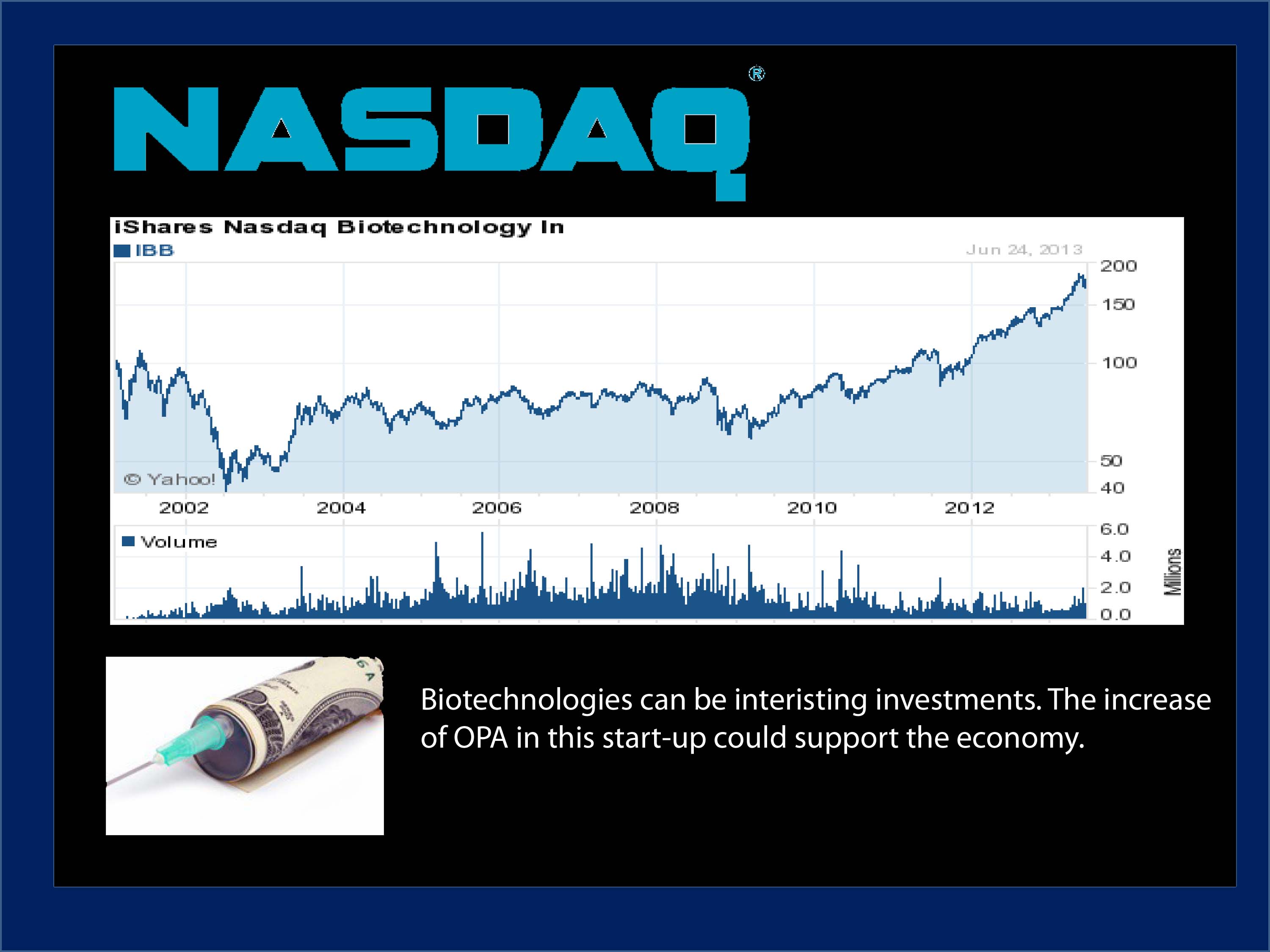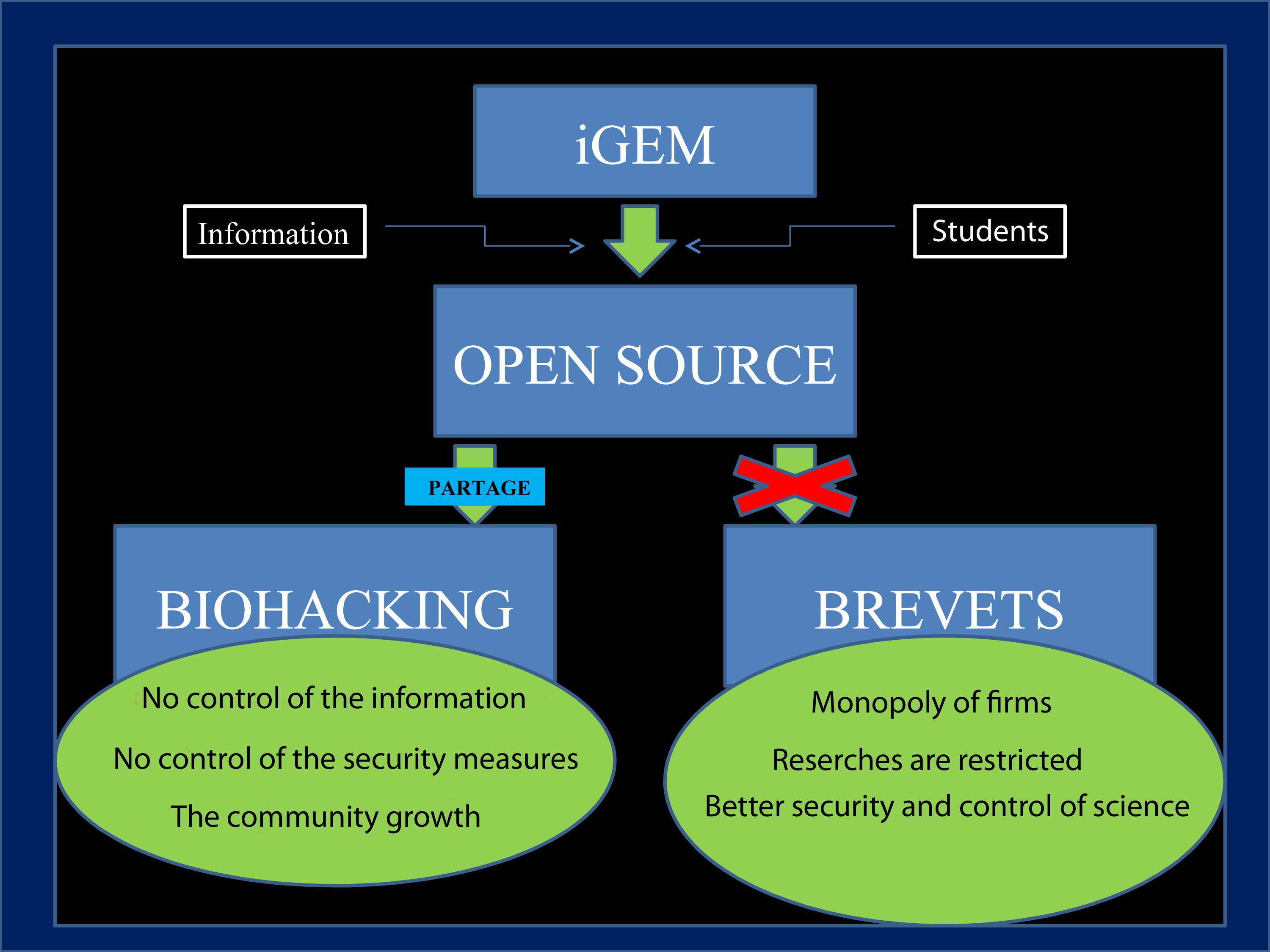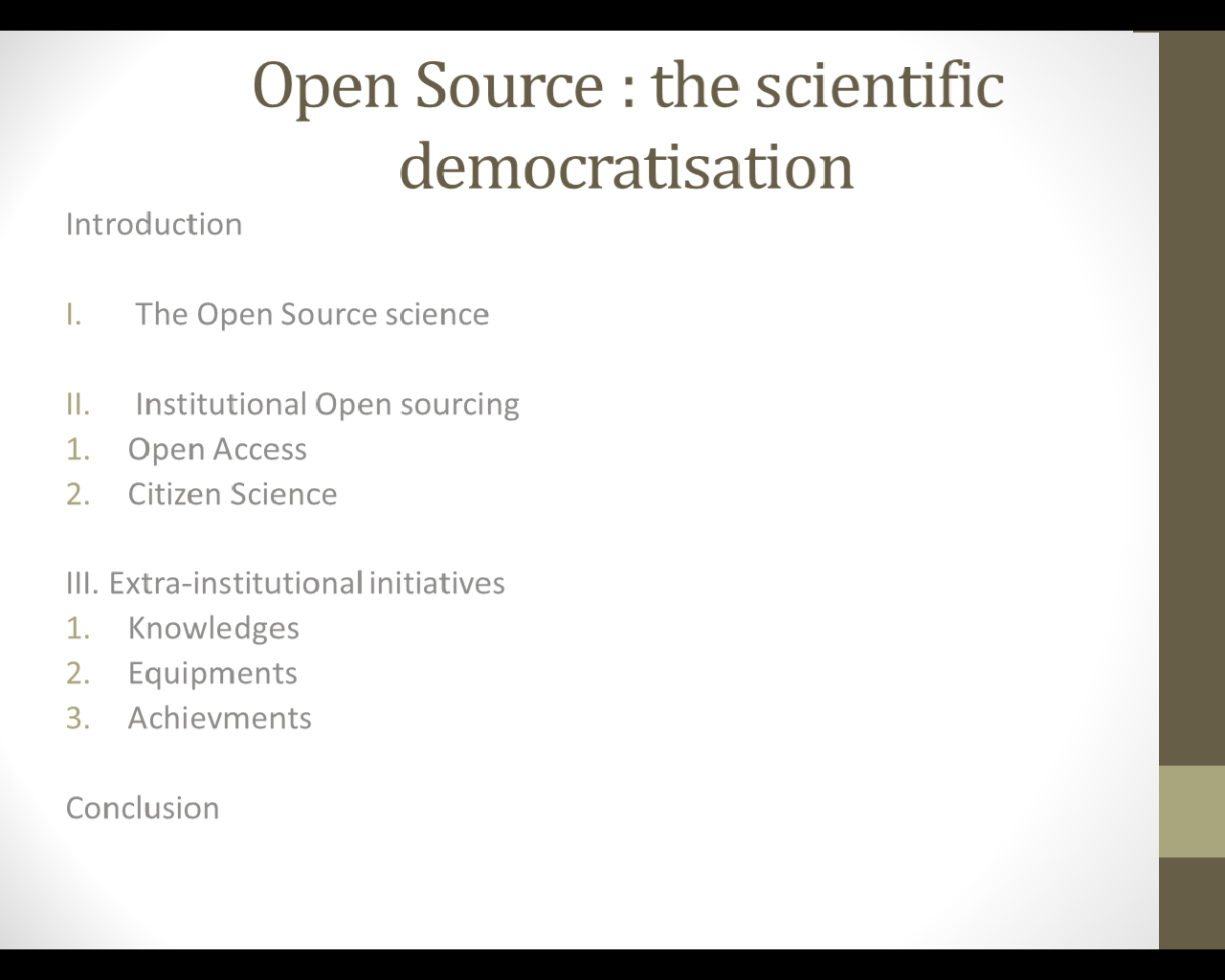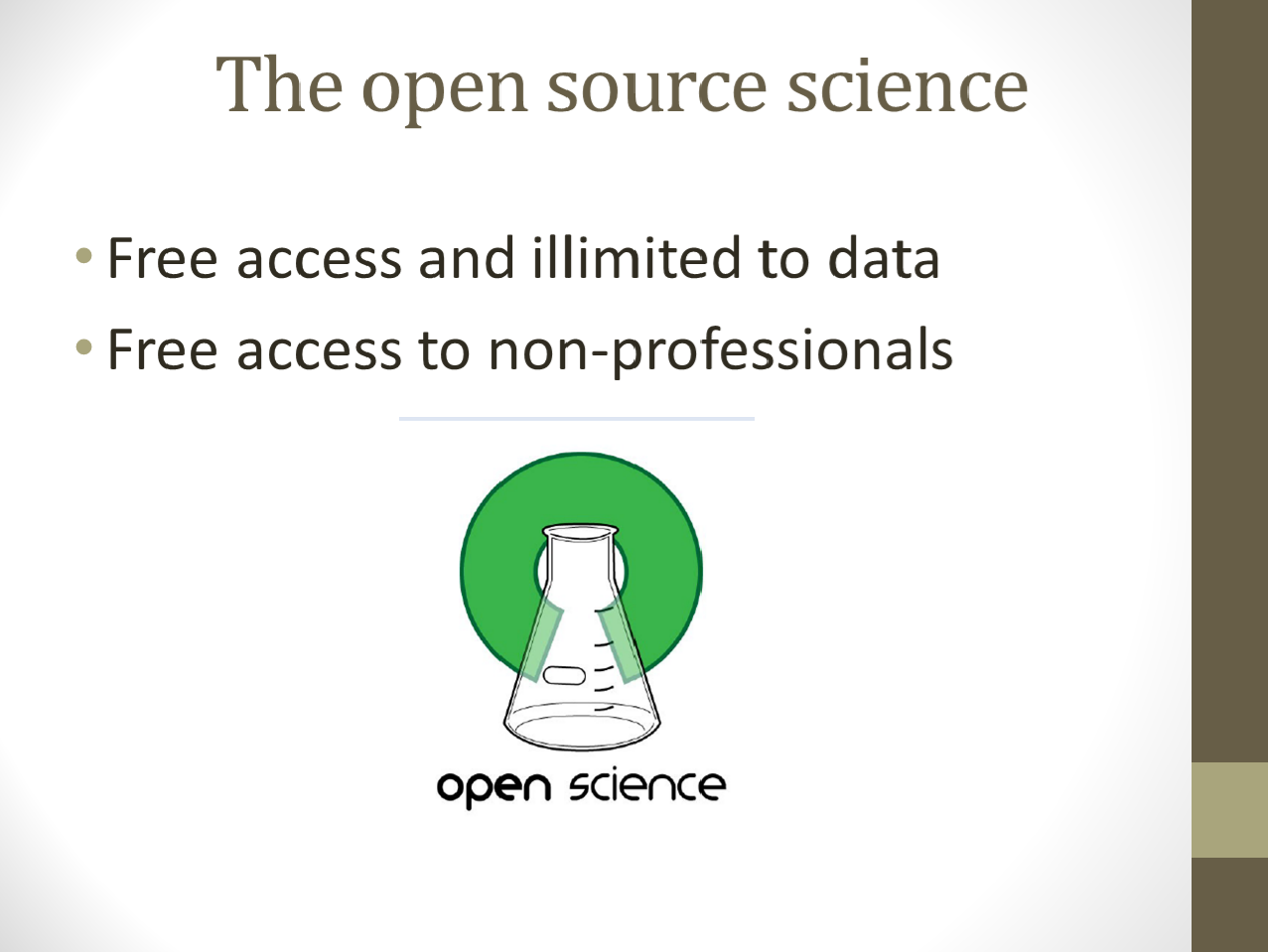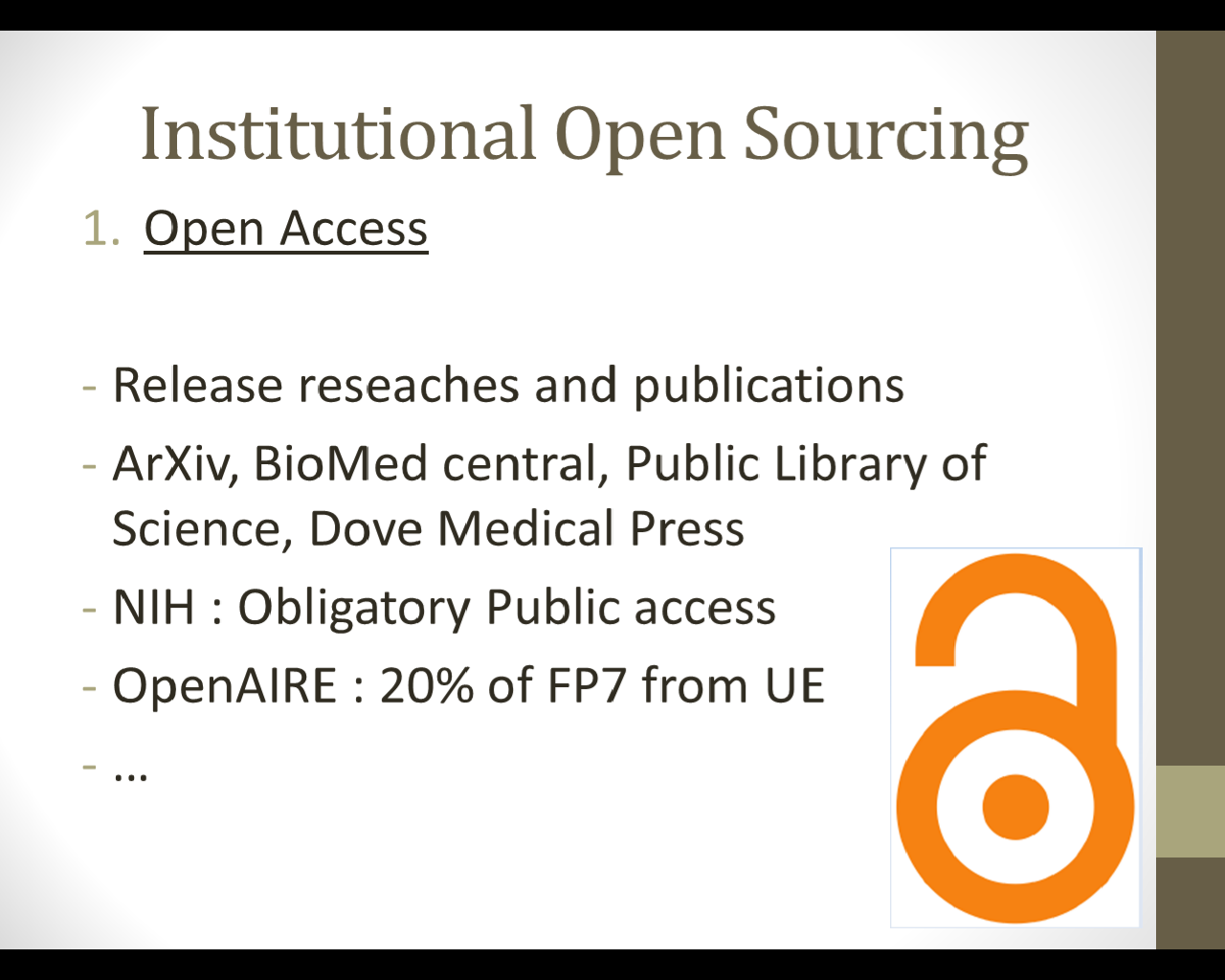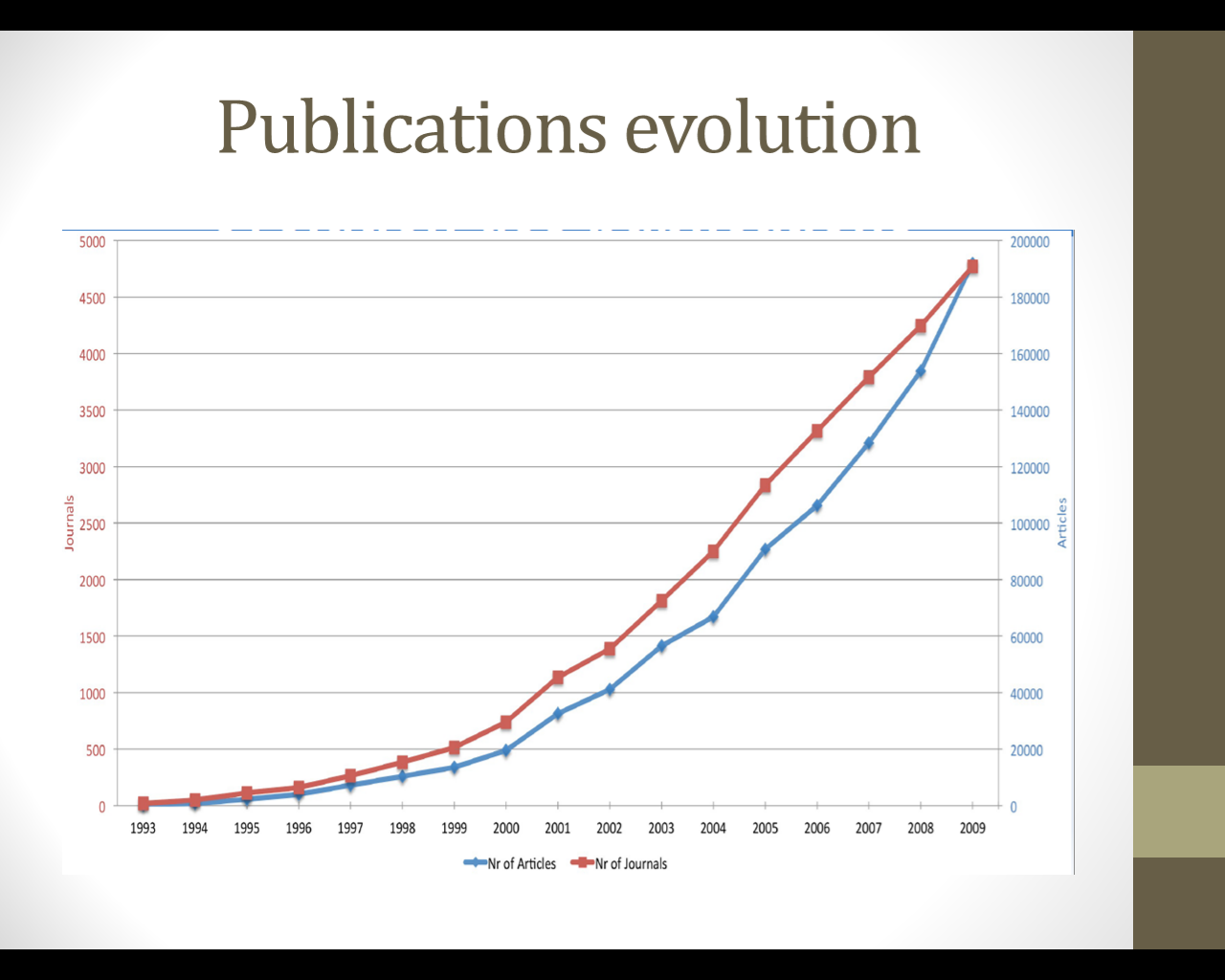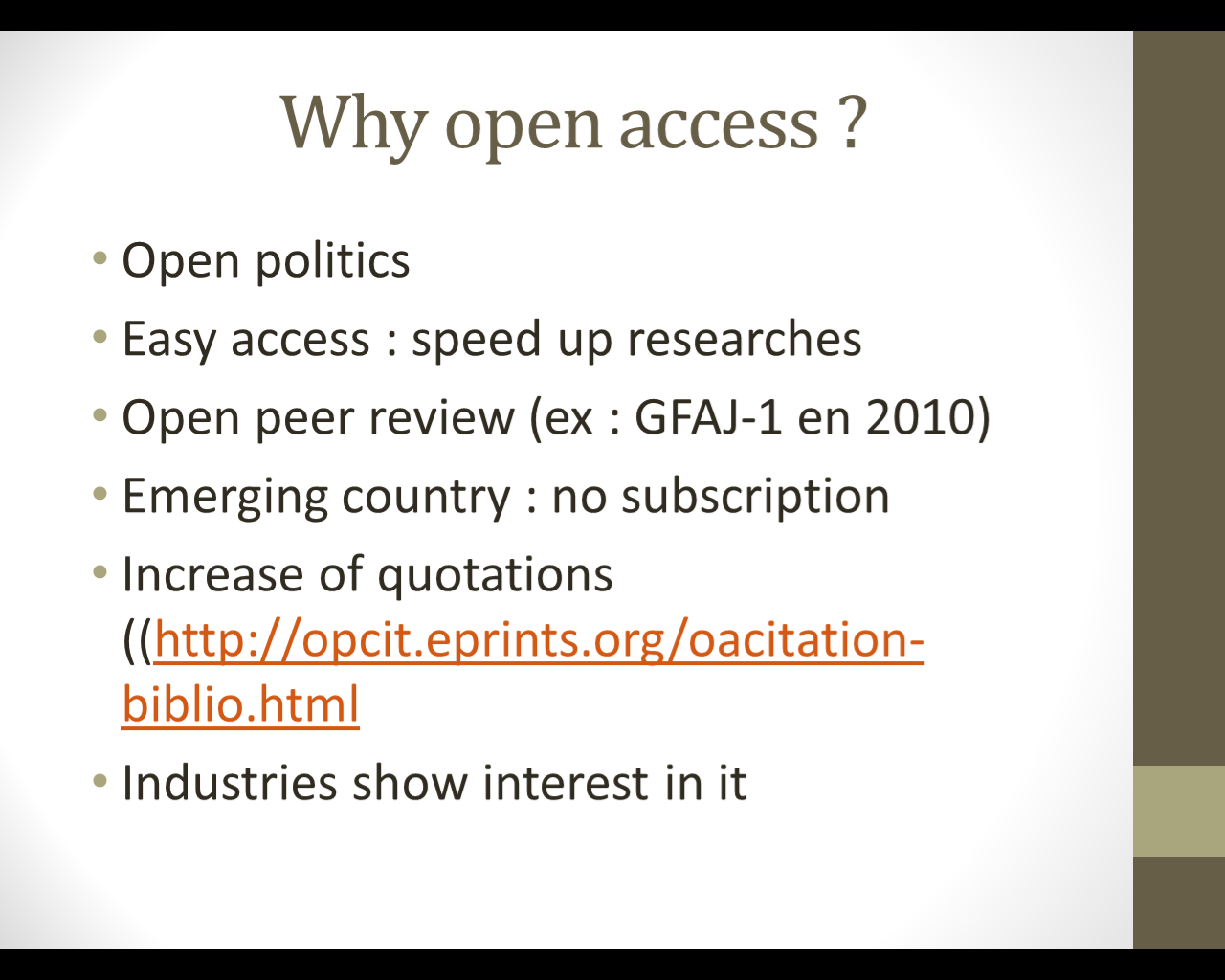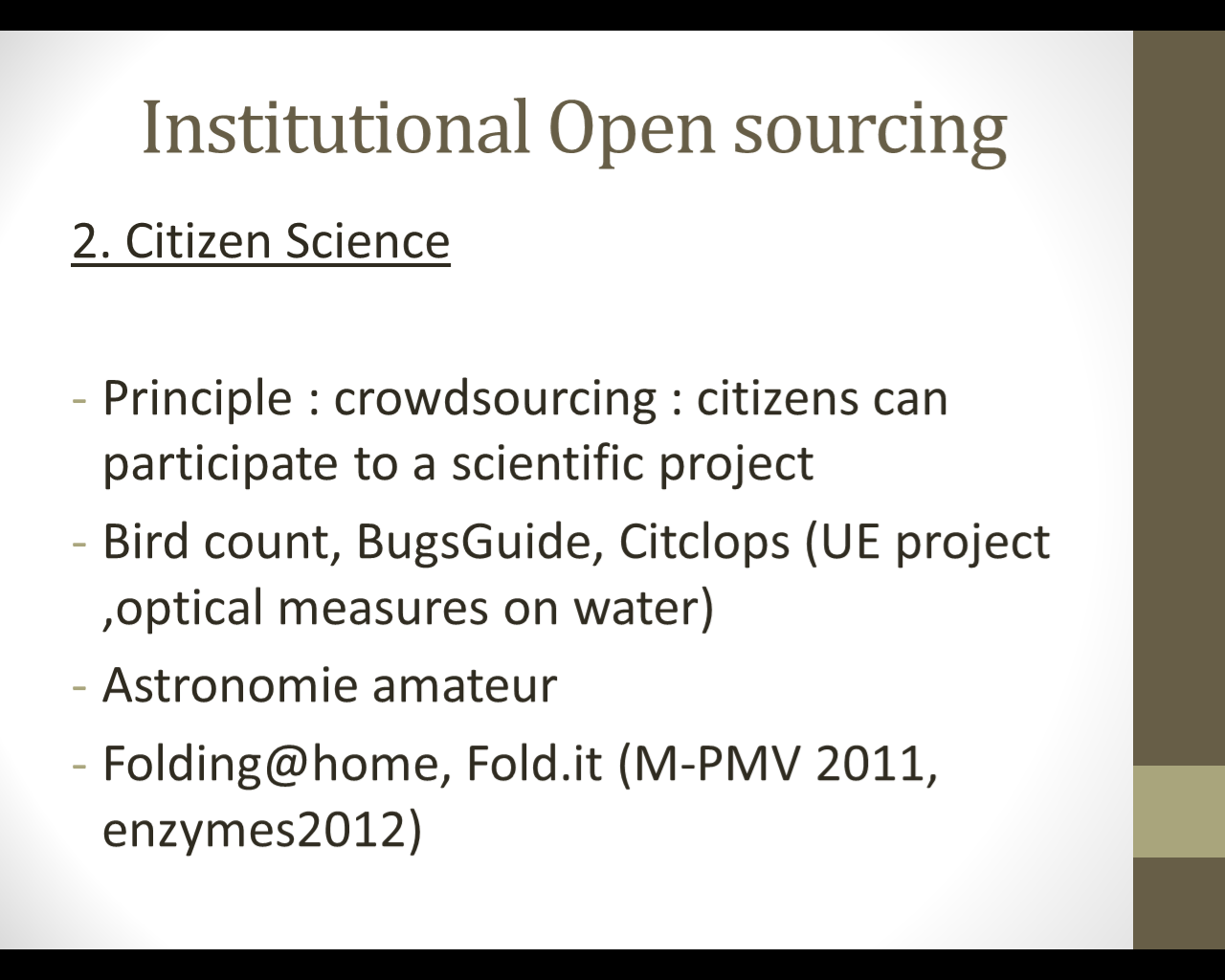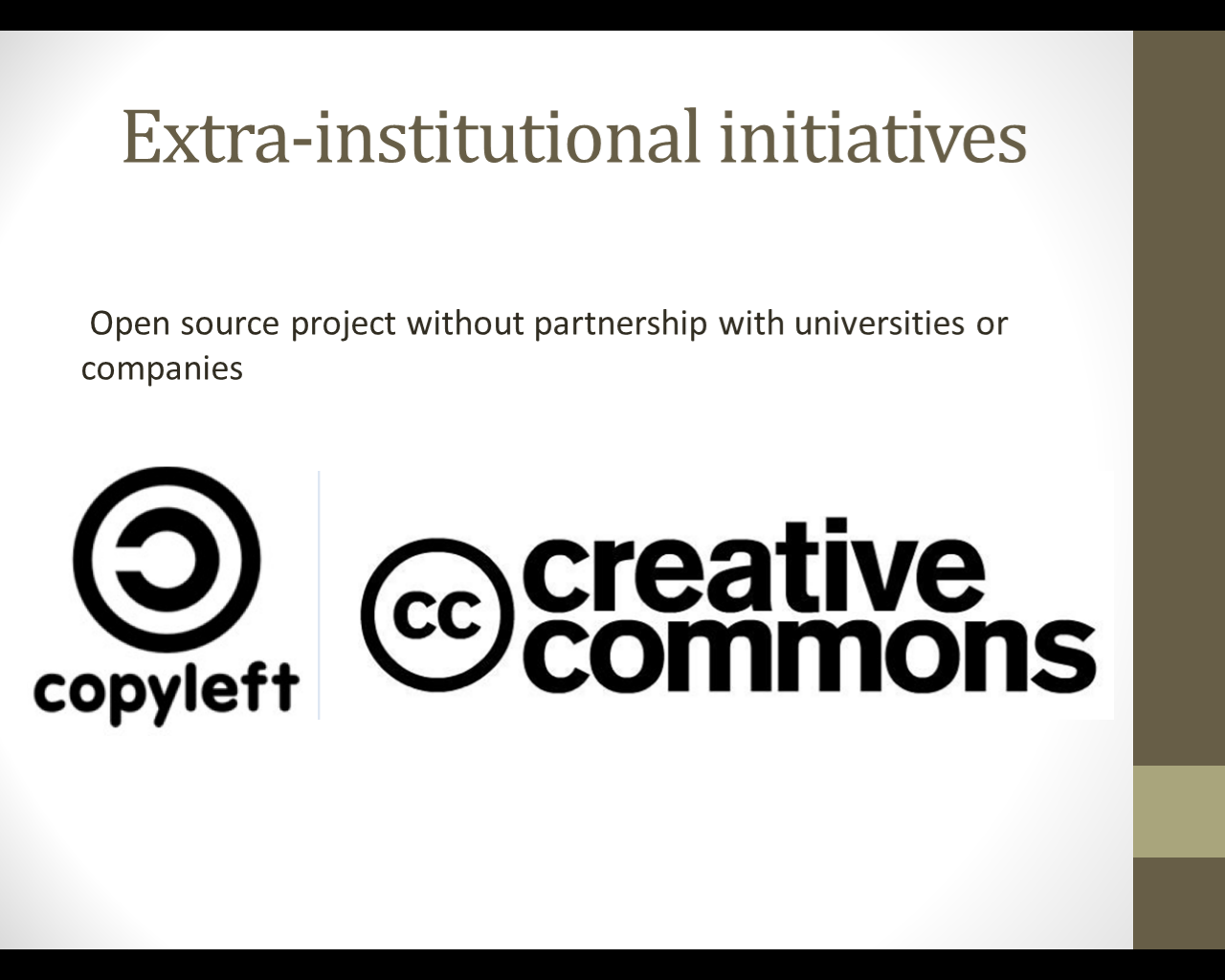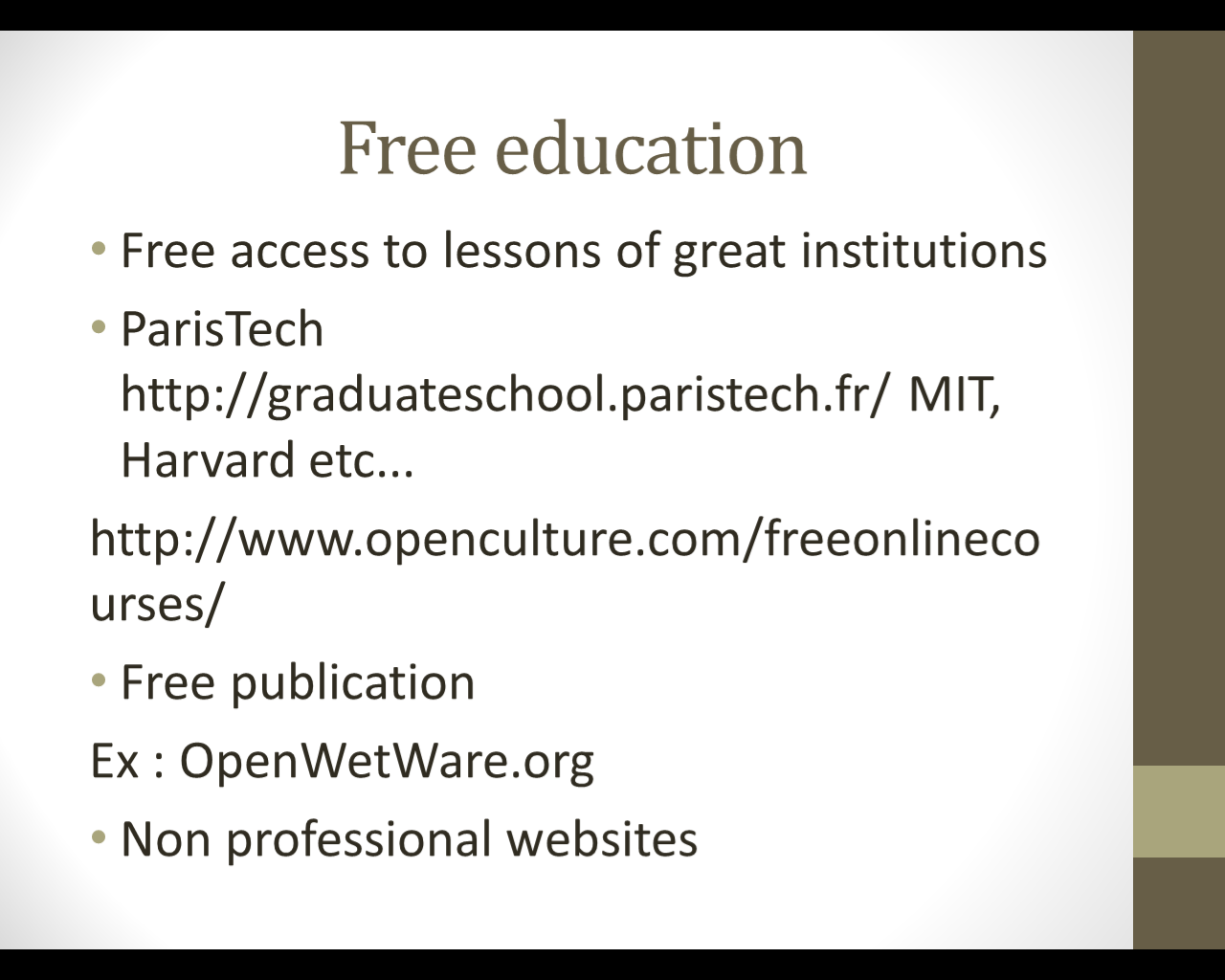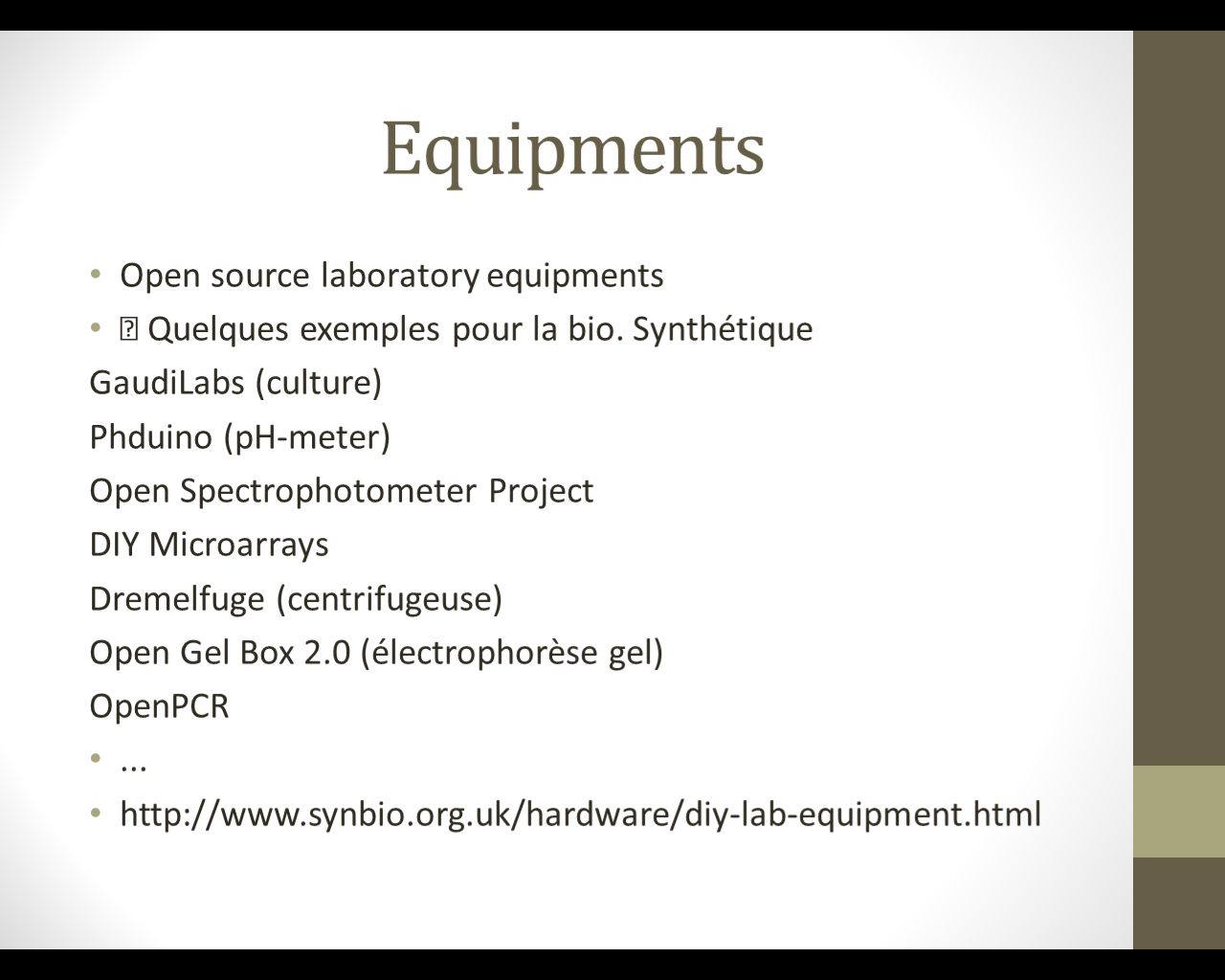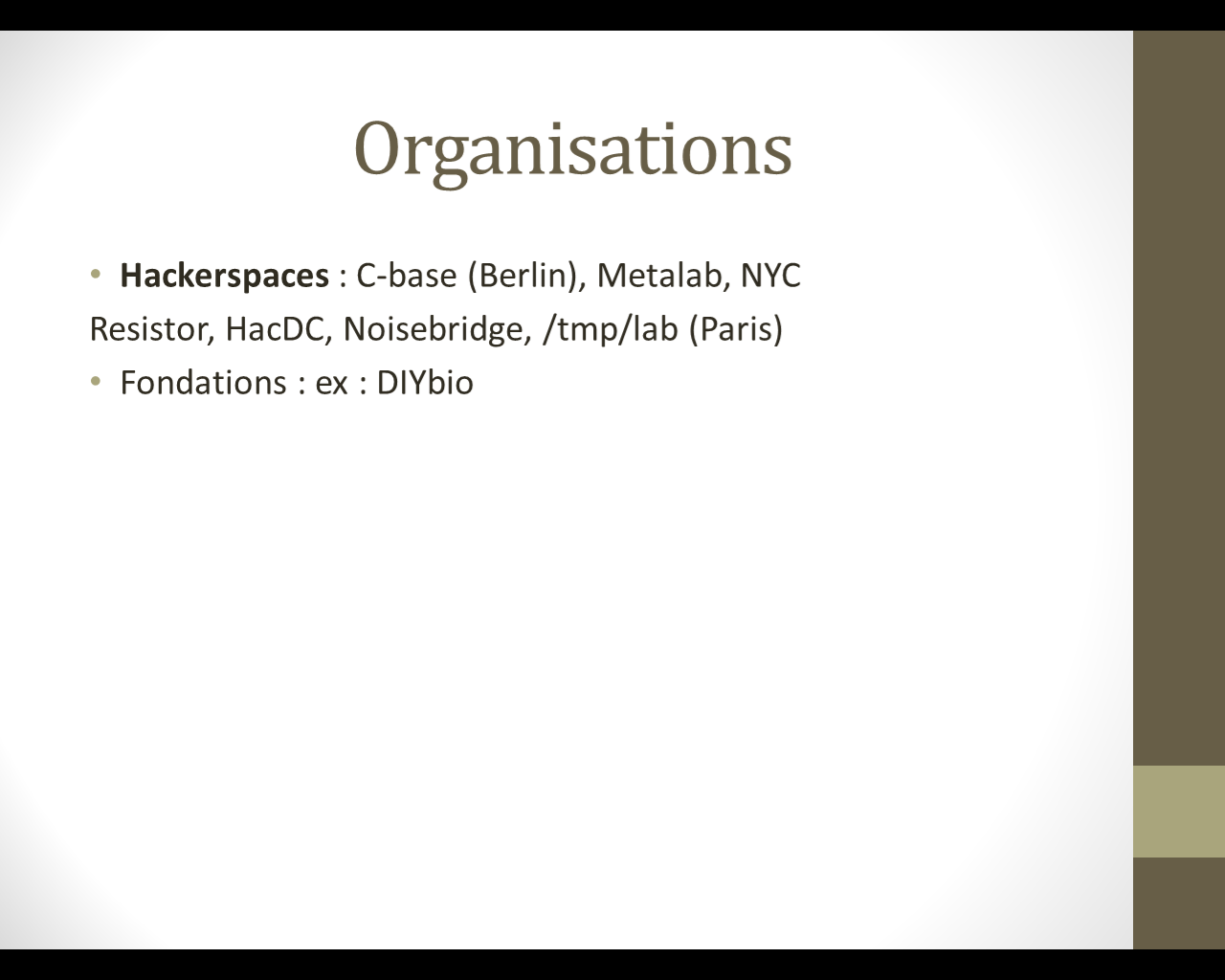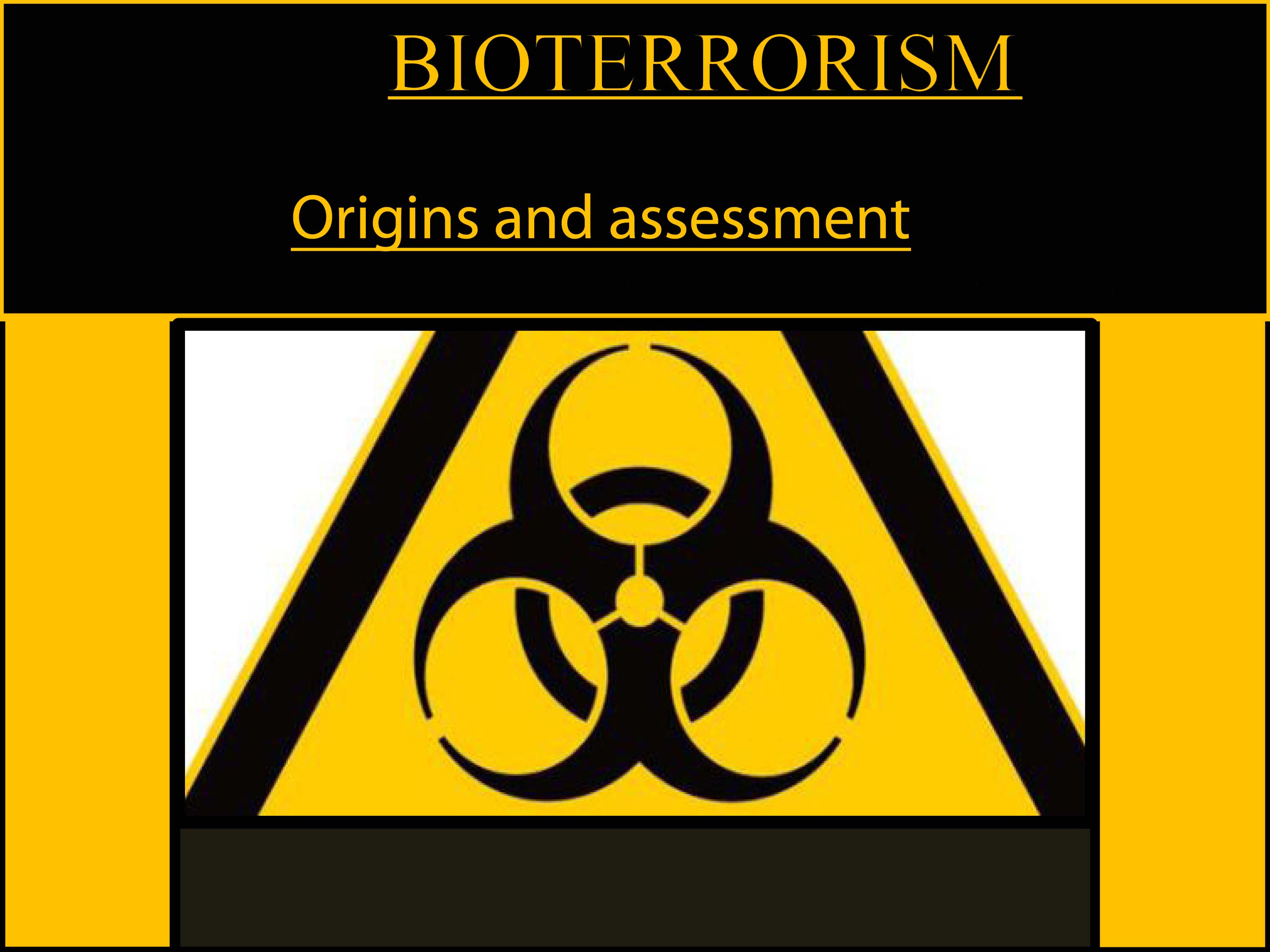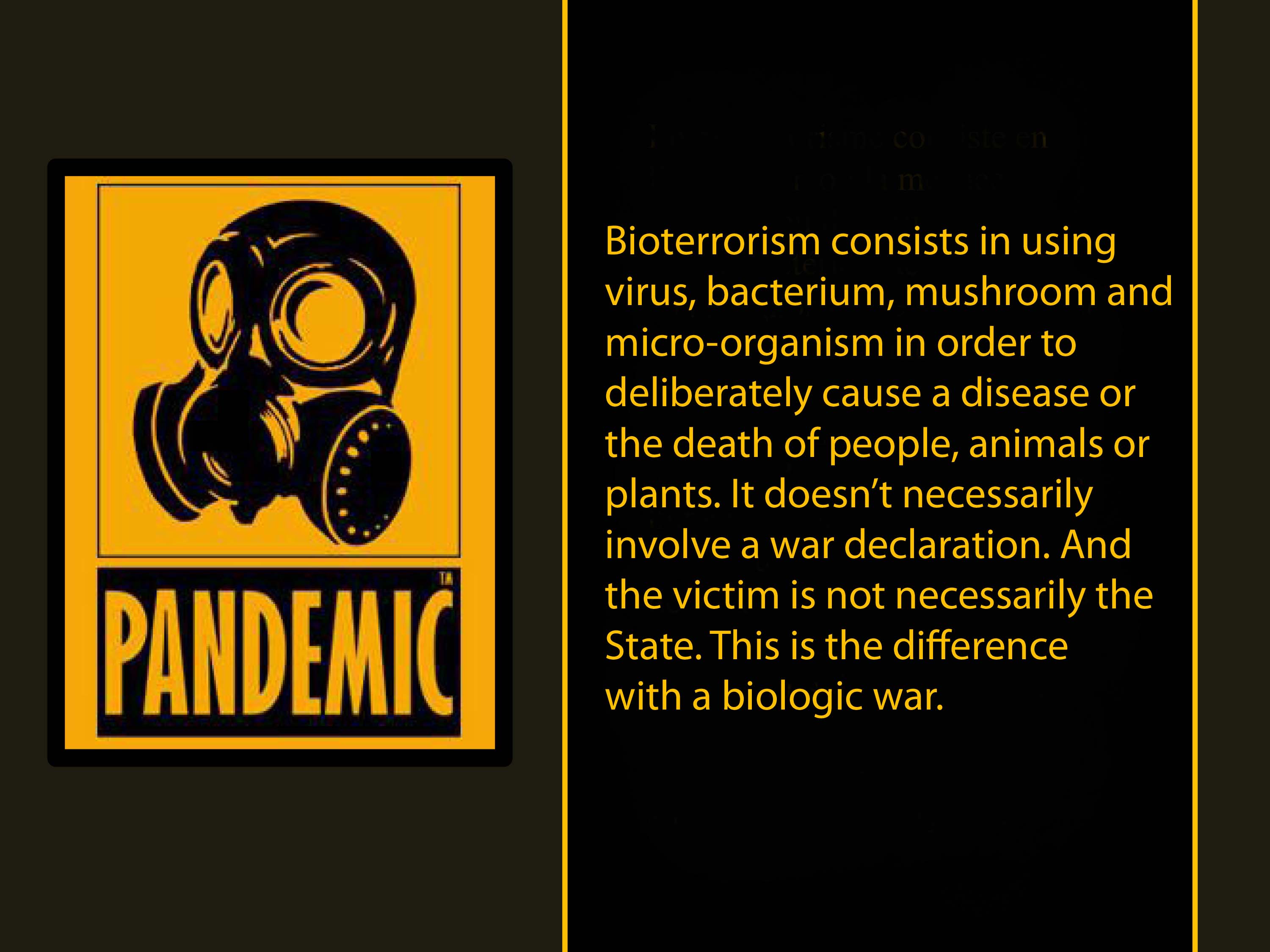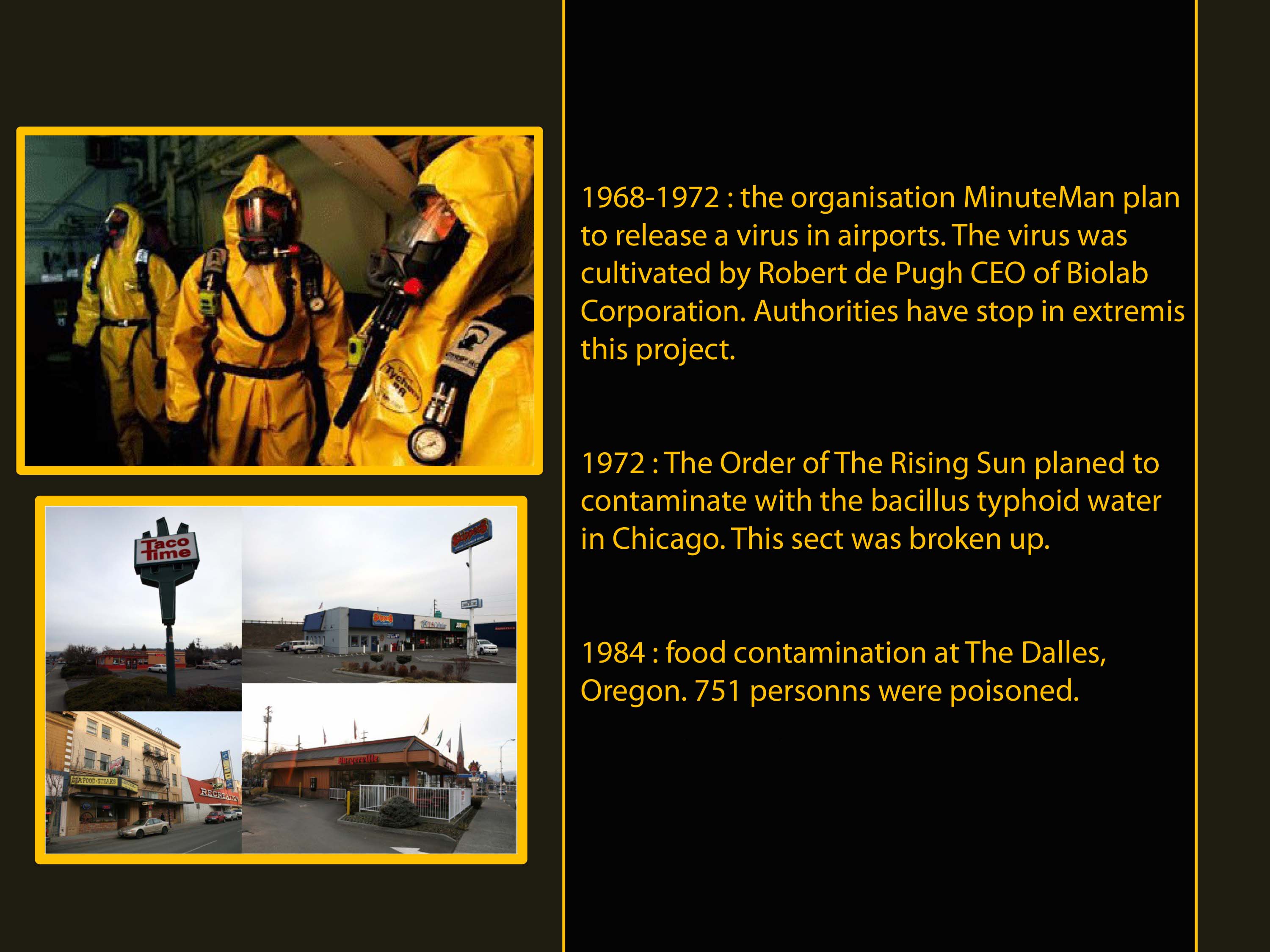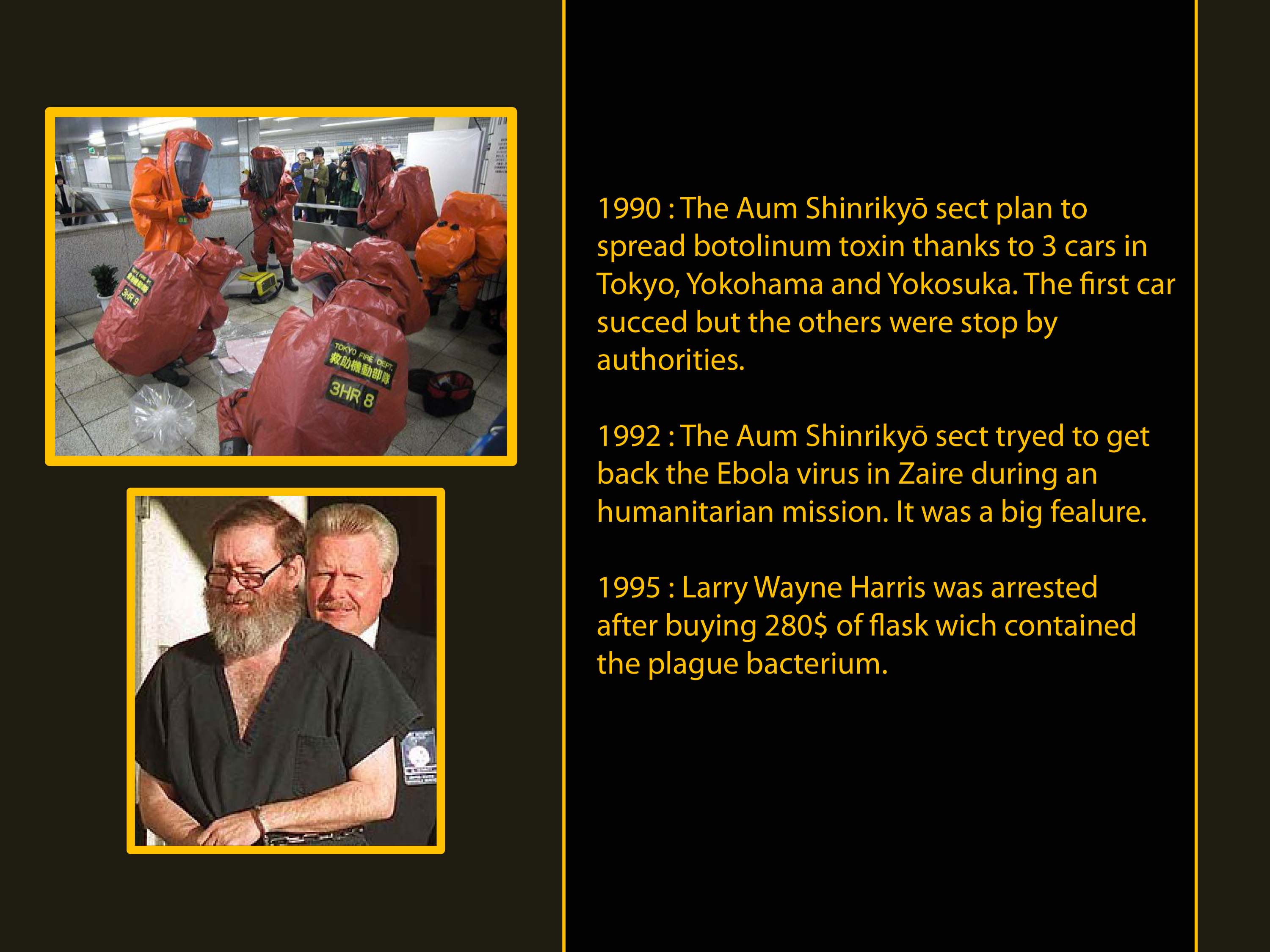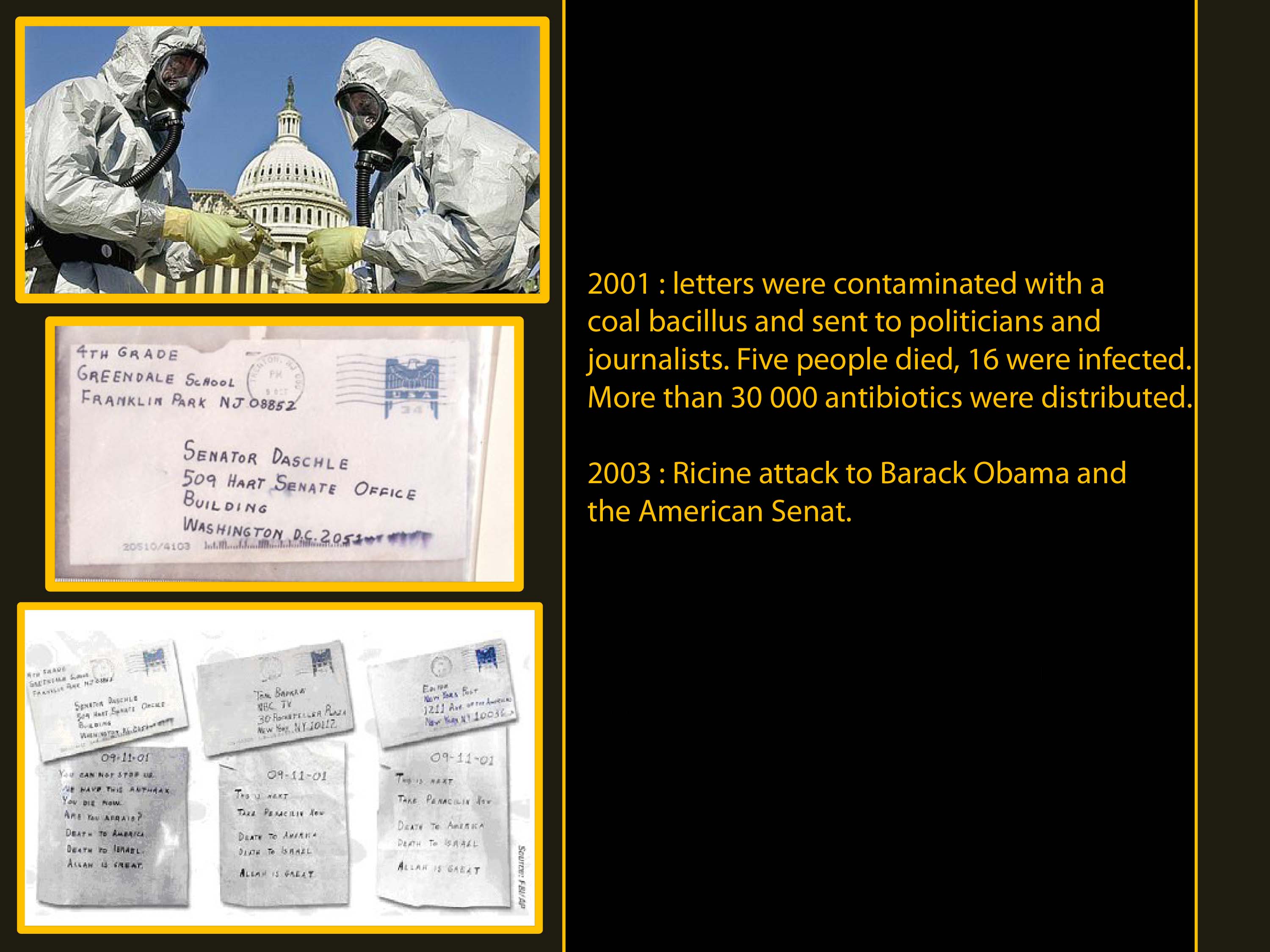Team:Paris Saclay/opensourcereflexion
From 2013.igem.org
Contents |
Open Source Reflexion
We have organized three big meetings during this summer. During each meeting, we chose two problematics that one or two members of our team had to present. Among these problematics there was: what is opensource ? what are the rules that govern the opensource ? what is the influence of the open source in our economy ? ... After each presentation we debated, and we tried to hightlight the important points of each problematics, what we learned and what were the future questions we wanted to address.
First meeting : 25/06/2013
People present: Caroline, Anais, Eric, Nima, Zhou, Gabriel and Nadia
This meeting was our first contact with the concept of Open Source applied to synthetic biology and with the impact of Open Source in our economy.
Introduction to Open Source
First, Anais and Gabriel introduced us to the Open Source philosophy, its nature and its principles.(paper)
Thanks to this presentation, we learned about the difference between free software and Open Source, and about the conditions of OSI. These definitions gave us the basis to raise some questions :
- Can we compare the software's world (and its concept of OpenSource) and the synthetic biology's world that tries to apply the Open Source?
- Between free software and open source, towards what way synbiology heads ?
- What is the impact or the role of the community on the type of model adopted ?
- The researches in synbiology and biotechnologies are they adapted to the Open source (and vice versa) ?
Bioeconomy and open source
Second, Eric made a presentation of the state of bioeconomy today (power point)
Thanks to his presentation, we learned about the Moore's laws and the impact of the open source on patents and firms. We raised some questions about this impact :
- Can patents and OpenSource co-exist without killing the monopoly of big firms ?
-
Second meeting : 02/07/2013
People present: Caroline, Anais, Eric, Nima, Zhou, Gabriel, Damir
Rules and Free Software
Zhou made a presentation about the rules of the open source and the different kind of free software in computer science. (Paper)
After his presentation, we discussed the positive and negative points of free software :
Some advantages :
1. Low initial capital. Don’t need to pay a license and fees for upgrade
2. Avoid the dependence on a single supplier. This means the enterprise can choose the service which have a high quality-price
3. Obtain the technology As code source is available for everyone, the developers learn important skills
4. Efficient system. Everyone can see you work, for some developer, software must be perfect for the publication, which leads usually some high quality product
5. Independence Community runs without much income
Disadvantage: 1. Do not pay enough attention to the user experience in some project
2. much imitate
3. Hard to have an ecosystem
4. Independence. The project dies if some key developer change the subject
5. High running cost. Not always free The source code may be modified by any user so there are too many versions. The upgrade of open source software does not include all the modifications users have made.
If some users are distracted by something else, a dead community is worth than closed
company
Open source software is not safer than proprietary-software. The security is dependant on
software upgrades and on how people utilize the software.
No professional technical support. And the responsibility is not clear at all.
The democratization of sciences
Damir made a presentation about the development and the democratization of science thanks to the open source (PowerPoint)
Thanks to his presentation we have better understood the extent and the impact of open source (in science) in our society. An important "made it by yourselve" movement is emerging, and this movement impacts our society and the way it was organized before. The questions we wanted to highlight here are :
- Can we imagine in few years the death of big manufacturing firms? Because people could make by themselves objects they need.
- What are the risks of this democratisation ? Can we let everybody make synthetic biology ? What king of measures the gouvernment can take to limit these ricks without lead to a dictatorship ?
Third meeting : 09/07/13
People there : Caroline, Anais, Eric, Zhou, Damir
Eric made a presentation about the bioterrorism (powerpoint)
Thanks to this presentation, we learned that the origins of bioterrorism can be diverse, it could be a sect, a political party, one person or an entire group.
 "
"
